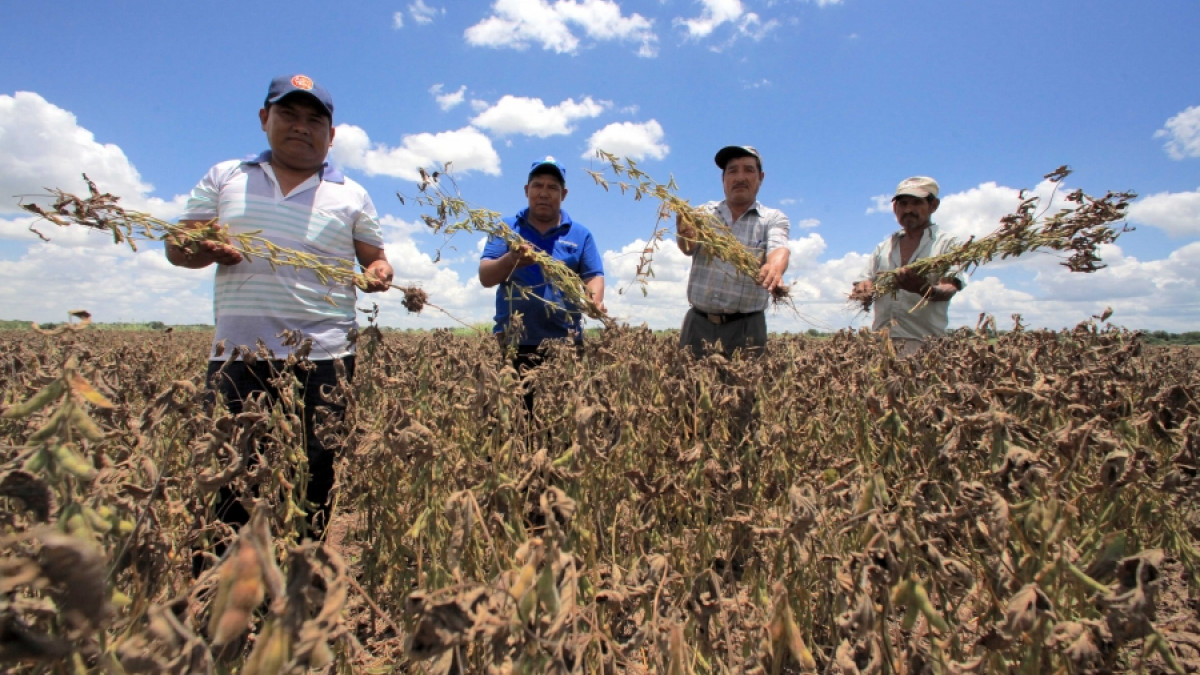Development also Means Food
I have just been in Washington DC, at the Spring Meetings of the World Bank and the International Monetary Fund, an annual meeting of the two key agencies of the world’s financial system, in which the current situation of the world economy and the perspectives for the future are analyzed.
It is a very busy week with networking, high-level meetings and dozens of events. This year, one of those events especially called my attention, as it dealt with a topic not usually related to multilateral development banks: food.
“On the Menu: Can Food Be the Planet’s Medicine?” was the title of the meeting, which gathered executives of the World Bank, senior government officials and civil society organizations that work on the preservation of the environment, climate change, and nutrition, as well as an outstanding American chef.
In the opening of the event, World Bank CEO Kristalina Georgieva told the following anecdote: not so long ago, she met the President of the WWF-US (World Wildlife Fund-US Chapter) and asked him which would be the most important challenge that the development agencies should take up to protect the planet. The answer puzzled her: food.
The answer demands consideration, as, maybe because of its everyday presence, food is not usually one of the topics we pay most attention in the institutions funding development. However, it has so much to do with other topics that we do handle, that it might be about time that we put it more in the center of our discussions.
A report recently published by the EAT-Lancet Commission (an NGO and a scientific magazine), addressed the question if it will be possible to feed all human beings (the seven billion of today and the 10 billion of not so far in the future) without turning the planet into a desert eroded by intensive agriculture.
The combined answer of 37 of the best experts in the world in this subject matter is that it is possible to alleviate hunger, reduce mortality due to diseases associated to overweight and obesity, and, at the same time, improve the health of the planet. How? By improving the way we eat and produce food.
Why is this important to FONPLATA? Mainly because large areas of our five member countries – Argentina, Bolivia, Brazil, Paraguay and Uruguay – are used to grow food. So much, that the agricultural production of all five countries together could feed about one fourth of the world population.
Agriculture's contribution to the GDP of each of these countries varies between a little less than 5%, in the case of Brazil, and almost 12%, in the case of Bolivia, according to the World Bank data.
Therefore, it is not a coincidence that one of the pillars of our work is rural development and the support to agriculture. For instance, with Las Palmas port in the Argentine province of El Chaco, we are facilitating soybean and other grains transportation from the agricultural fields to the main international seaports.
The bridges that we are building in the department of Cochabamba, in Bolivia, shall help hundreds of small-scale farmers to transport their products to the closest markets and take to their farms the equipment and inputs they need to continue producing.
Likewise, the roads we are building and maintaining in Paraguay facilitate circulation in the wealthy livestock areas of the country, as well as in Uruguay, where, besides the road enhancement programs, especially in rural areas, we are working in the enlargement of the Port of Montevideo, so that meat and other products can reach faster their international destination.
These are just some examples of the way our work supports agricultural production in our member countries. We aim at continuing helping them boost a solid and productive agriculture that respects the environment.
As for how we eat, the Lancet-EAT report suggests important changes in diet, especially in the most developed countries: it recommends to reduce red-meat, processed-food, and sugar-added-food consumption; and, at the same time, increase fresh fruits and vegetables consumption, as well as dry fruits and beans.
If these recommendations are followed, and food culture changes in a large part of the population, certainly there will be changes in food demand and in food production. Argentina, Bolivia, Brazil, Paraguay, and Uruguay must be prepared for those changes, and institutions like FONPLATA must be ready to help them reach that goal, because development also means food.
Text published in Juan E. Notaro’s monthly column in the Huffington Post.

